About us
Leading the Way in Recycling Innovation to Build a Cleaner, Sustainable Future for Generations to Come.
We address hard-to-recycle materials with creative solutions, community partnerships, and cutting-edge technology. From gamified recycling to tackling single-use waste, we’re paving the way for a cleaner, more sustainable future.
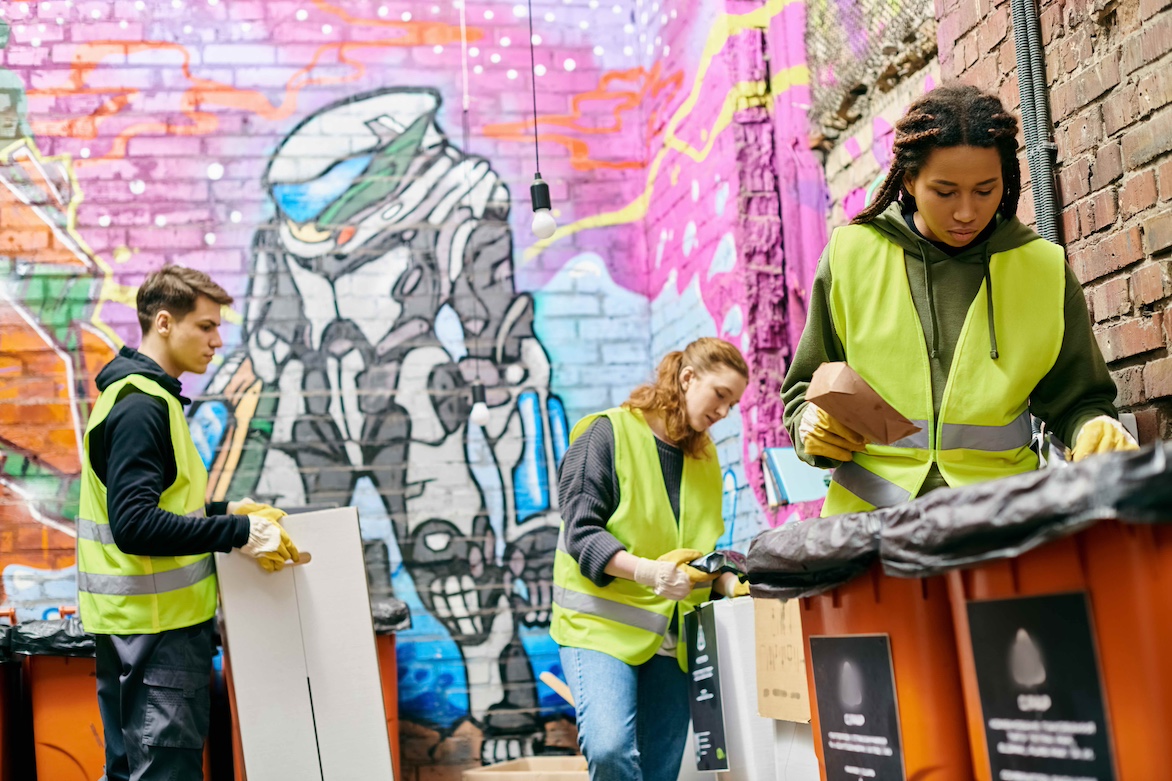
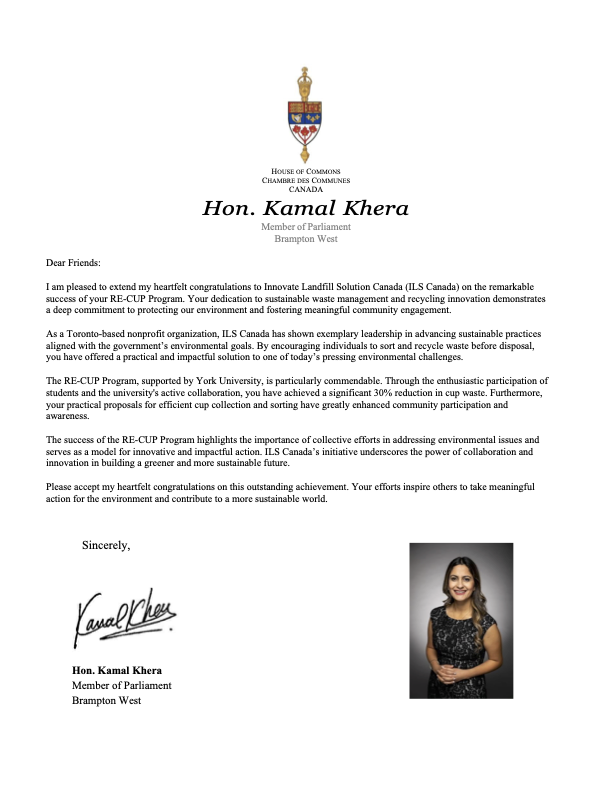
An Inspiring Message from MP Hon. Kamal Khera!
MP Khera praised ILS Canada’s RE-CUP™ program for cutting cup waste by 30% and setting a new standard in sustainability.
Building 2030
Cups recycled
1.6B
recycling rate
85%
waste reduced
1.6Mt
trees saved
480K
Ontario has 9 years until landfills reach capacity
The province only has nine years left until landfills reach their capacity. Some experts say the issue isn’t just the shortage of landfills but the amount of waste we produce.
Turning Waste into Opportunity
Explore our innovative solutions transforming waste into resources.
We’re tackling Canada’s toughest recycling challenges with creative, impactful solutions. From gamifying recycling to improving collection systems, our initiatives are designed to drive real, sustainable change.
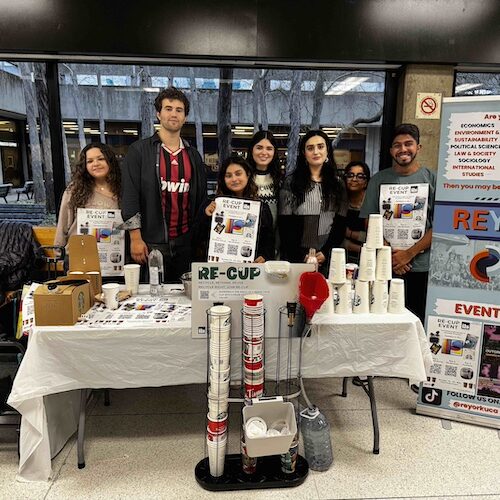
Re-Cup™
Re-Cup™ introduces an innovative system that separates cups, lids, and liquid residues, revolutionizing the recycling process. Cleanly separated cups become more viable for…
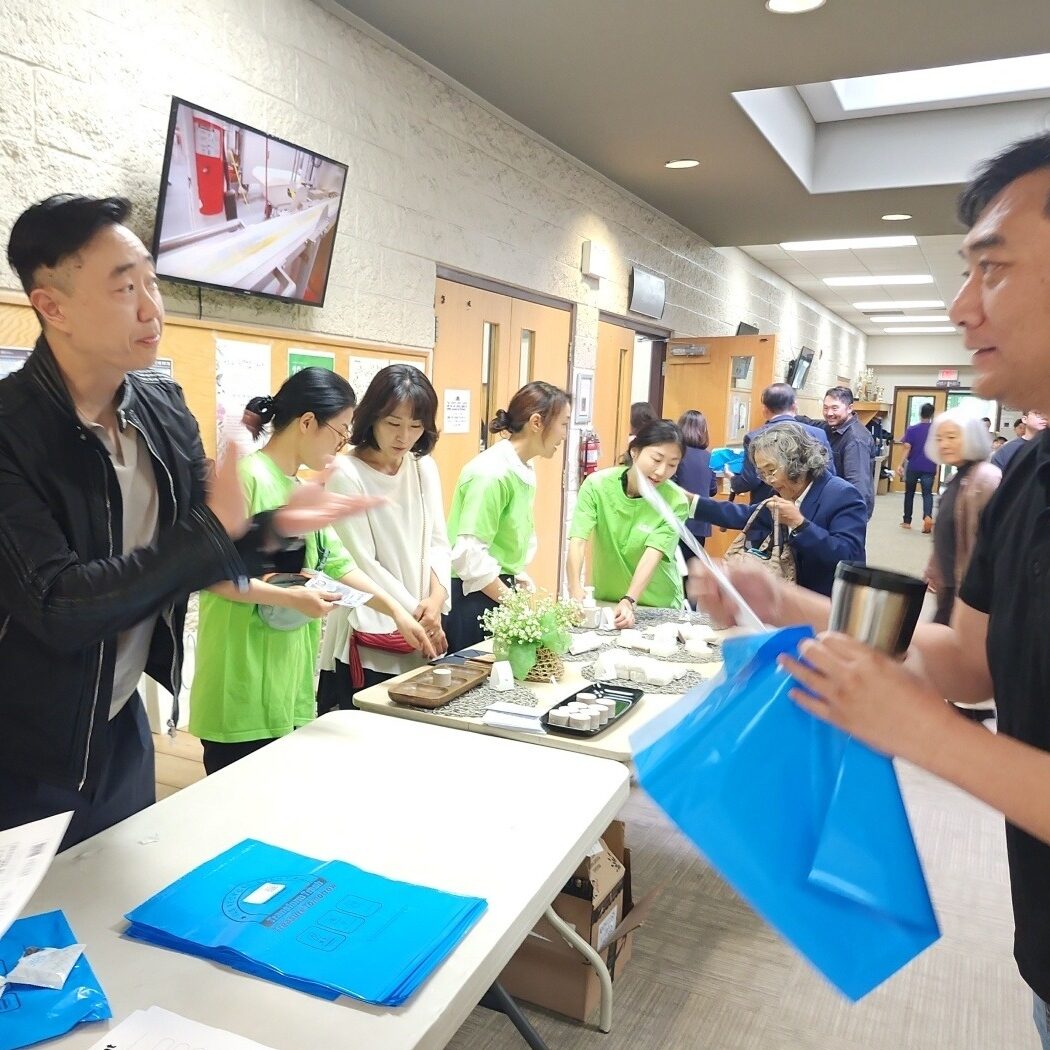
Hard to recycles
Ontario currently lacks a recycling solution for multi-layer plastics (MLP) and plastic films, leading to the landfilling or incineration of approximately 1.4 million tons annually.
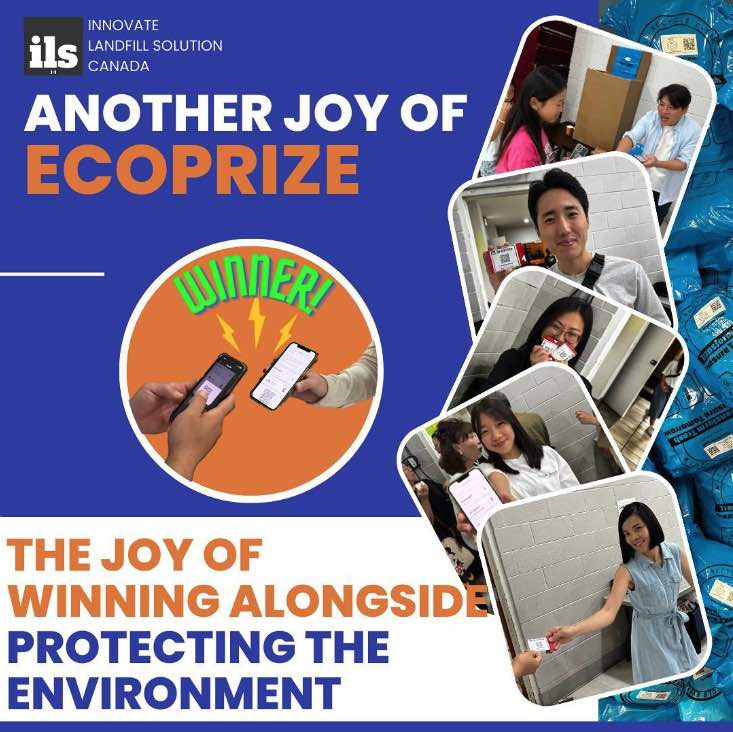
EcoPrize™
We developed the EcoPrize system to gamify recycling and increase awareness about hard-to-recycle materials. This innovative approach was recognized by Canada’s Plastic Challenge, where
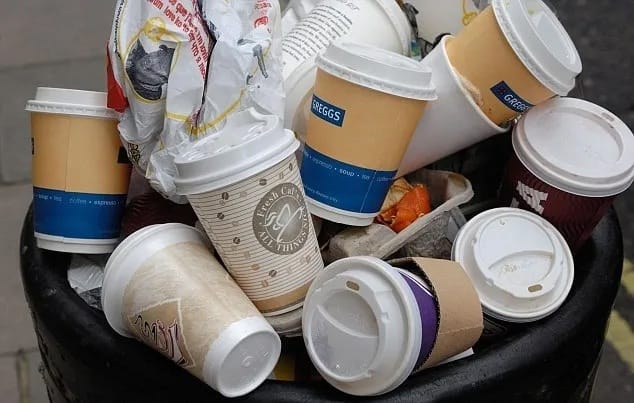
Cup Crisis
Cup disposal contaminates recycling streams and contributes significantly to landfill waste—it’s time to address the issue.
Single-use cups are one of the most overlooked contributors to landfill waste and environmental contamination. In Canada alone, an estimated 1.6 billion disposable cups are discarded every year, most of which end up in landfills due to improper disposal and recycling challenges.
Packaging Pollution
Hard-to-recycle plastics like MLP and packaging waste overwhelm landfills—innovative solutions are urgently needed.
Plastic packaging, including multi-layer plastics (MLP), poses one of the biggest challenges in waste management today. In Ontario alone, approximately 1.4 million tons of plastic packaging are …
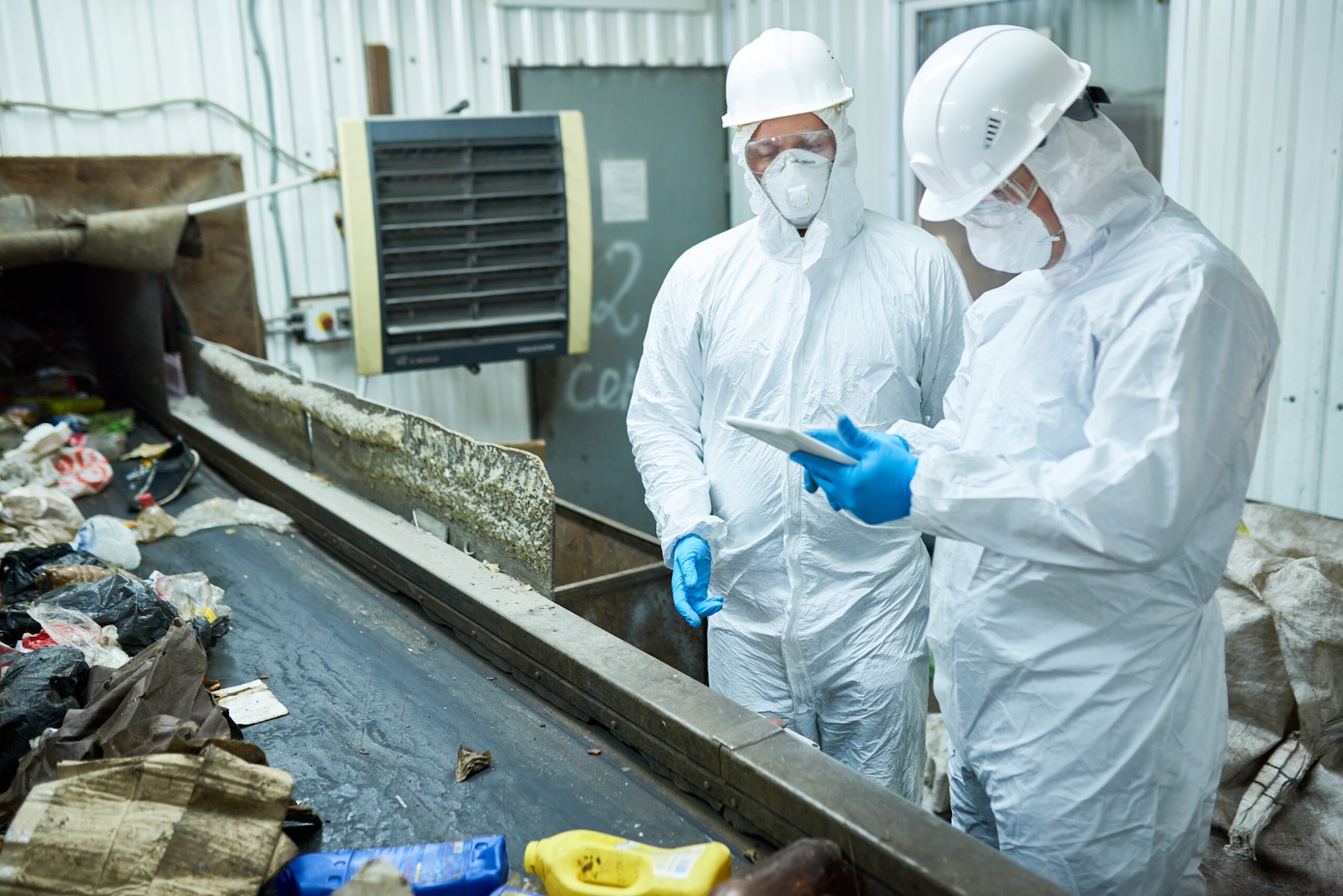
Impact
Re-Cup™ 2025
@ York University
Covering more areas and increasing the number of collection stations. This larger initiative builds on past successes to enhance single-use cup recycling, reduce waste contamination, and foster sustainable habits across the campus community.
MLP Collection 2024:
North York
Addresses the challenge of multi-layer plastics and plastic film waste. Through community efforts and innovative methods, it aims to reduce landfill waste and improve recycling systems for a more sustainable future.
Re-Cup™ Pilot 2024
@ YorkU Economics Dept.
Collaborative initiative with Economics Department, aimed at revolutionizing the recycling of single-use cups. This partnership combines innovative waste management solutions with data-driven insights to improve recycling efficiency and drive sustainable change.
Gamify Recycling, Inspire Action, Drive Change
Innovative approach to engaging communities in sustainable practices. By making recycling interactive and rewarding, we encourage meaningful participation and create lasting environmental impact.
EcoJackpot Pre-Qualified for ISED Challenge 2023
An innovative proposal that gamifies recycling to tackle hard-to-recycle plastics. Recognized for its potential, it was pre-qualified for the ISED Plastic Challenge, highlighting its impact-driven approach.
Dec 2023: ILS Canada inc. Founded
Established in December 2023 with a mission to revolutionize recycling and waste management. Focused on innovation and collaboration, the organization aims to tackle hard-to-recycle materials and drive sustainable change.
Founders
Leading with vision and expertise, our Board guides our mission toward sustainable solutions.

Yoojung Jhon
CEO

Inhyuck Kim
Head of engineer
Associated Partners
United for change, our members support and amplify our impact on recycling innovation.

Katarina Bursac
Researcher & columnist

Samuel Gikonyo
Event Marketing coordinator

Emily Jean Tenance
event marketing coordinator

Puru Singh
Partnership coordinator

Namki Kang
Administrative officer

Young Joon Kim
property acuisition manager

Paul Jung
property acquisition manager
What are you waiting for?
What are you waiting for? Let’s work together to drive change and build a cleaner, more sustainable future. Reach out today and be part of the solution!
Our Projects
Explore our innovative projects driving sustainability and transforming recycling through cutting-edge solutions.
Blog & news

Re-Cup™ 2025 @ YorkU
About RE-CUP²We’re thrilled to bring the RE-CUP program back to York University! From May 5 to June 30, 2025,[…]
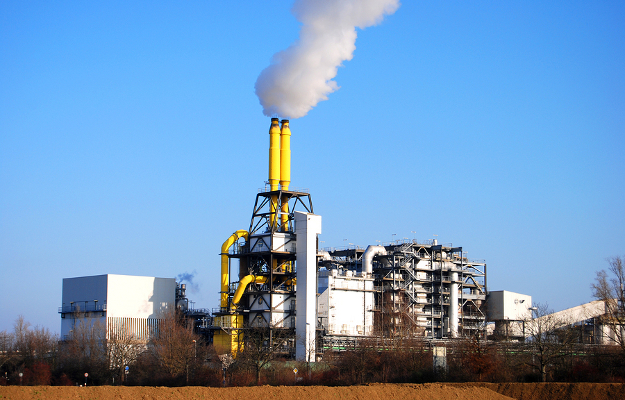
Sweden’s Waste Model: Is It Truly Sustainable for Canada?
Sweden’s waste management system is considered a global model, but it’s worth questioning whether it is truly the best[…]
Testimonials
See what others are saying about our impact and innovative solutions.

It was a great opportunity to get students aware of the problem of single use paper cups which are a significant contributor to landfill waste in Canada currently. In talking to students we did find that there was a lot of …
Ethan

With Re-Cup™, recycling on campus has become more efficient and impactful. Separating cups, lids, and liquids has made a noticeable difference in waste management.
Catherine

The MLP Collection campaign has brought communities together to tackle plastic waste creatively. Gamifying recycling has made it both fun and effective.
Katarina

EcoPrize has turned recycling into a rewarding experience while addressing the challenges of multi-layer plastics. This initiative shows how innovation can inspire meaningful environmental action.
Samuel

Contact us
Connect with us to share ideas, ask questions, or join the movement for a sustainable future!